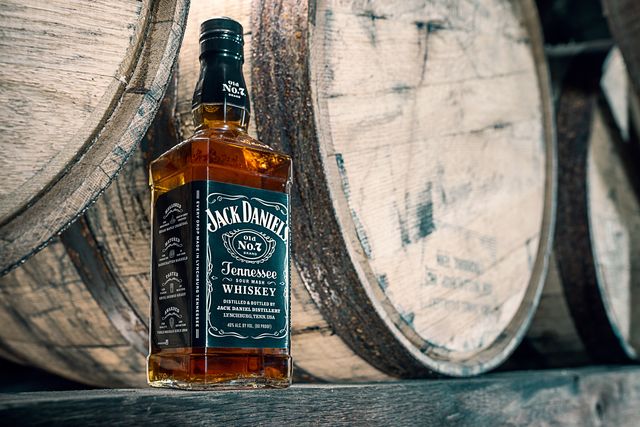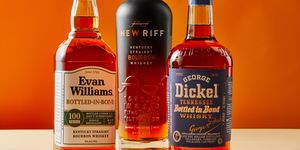If you know anything at all about Jack Daniel's, you know that Jack Daniel's makes Tennessee Whiskey — not bourbon. Even over the past decade as the entire world lost its mind for bourbon, Jack Daniel's has stood strong and resisted the urge to slap a bourbon label on any of its bottles just for the sake of satisfying the market. But I'm going to let you in on a little secret: Just because Jack Daniel's doesn't market its whiskey as bourbon, that doesn't mean it isn't.
What is bourbon?
Different types of spirits have different requirements, in different countries, to be labeled a certain way. Scotch needs to be distilled from malted barley in Scotland, while also adhering to a handful of other rules. Tequila? That can only legally be produced in five Mexican states and its distillate has to contain at least 51 percent blue agave. Rum? Well, other than needing to be distilled from some type of sugarcane product, rum is largely a free-for-all. Bourbon, however, has very strict rules that must be followed in order to be sold in the U.S. as such. Those rules are as follows:
- It must be distilled from a mash containing at least 51 percent corn
- It must be aged in new charred oak barrels
- It must enter the barrel at no more than 125 proof
- It must be distilled to no more than 160 proof
- It must be bottled at no less than 80 proof
- It cannot contain any added flavorings or color (just water)
- It must be produced in the United States — any state, not just Kentucky
Jack Daniel's is technically bourbon
Following those rules above, Jack Daniel's Old No. 7, the brand's flagship bottle, along with all of the brand's other whiskeys that aren't labeled as rye or American single malt — i.e., its Tennessee Whiskeys — are all legally bourbon. These whiskeys are made with a mashbill consisting of 80 percent corn, 12 percent malted barley and 8 percent rye, and they follow all of the other legal processes to qualify as bourbon.
I took part in a recent tasting at the Jack Daniel Distillery in Lynchburg, Tennessee, during which master distiller Chris Fletcher described several bottles from the core collection — Old No. 7, Jack Daniel's Bonded, Jack Daniel's Single Barrel Select and Jack Daniel's Single Barrel Barrel Proof — as "bourbon."
"If we wanted to label it bourbon, we would just change the label," Fletcher says. "It's very simple, it's not a big deal."
So if that's the case, then why doesn't Jack Daniel's sell its whiskey as bourbon?
The Tennessee whiskey difference
There is one simple reason why Jack Daniel's doesn't market its whiskey as bourbon, and that is its charcoal mellowing process. Also known as the "Lincoln County Process," this is an extra step taken by Jack Daniel's in its whiskey-making process that sees its unaged whiskey filtered through a vat of charcoal, which the brand says gives Jack Daniel's extra smoothness and its distinct flavor.
"The charcoal is really most effective on corn notes," Fletcher says. "When you pick up a glass of No. 7, you don't get a lot of corn ... But for an 80-percent corn, 52-month-old product, you would expect a lot of sweet corn coming through. That's the magic of the charcoal: It's absorbing a lot of that cooked cereal grain, corn flake kind of note that's very common in bourbon — which is perfectly fine, it's not anything bad or wrong or an off-note — it's just not what we want in this product, and that's why we send our whiskey through the charcoal."
Charcoal mellowing has been associated with whiskey-making in Tennessee for "hundreds of years" Fletcher says, and Jack Daniel's is proud of that heritage and believes it's important to continue honoring it with the words "Tennessee whiskey" on its label instead of "bourbon." It helps set Jack Daniel's apart in the market, and clues in the customer that they're getting something just a bit different from standard bourbon.
"Charcoal does not add, it removes," Fletcher says. "Charcoal mellowing doesn't prevent us from labeling as bourbon, it allows us to label as Tennessee whiskey."























